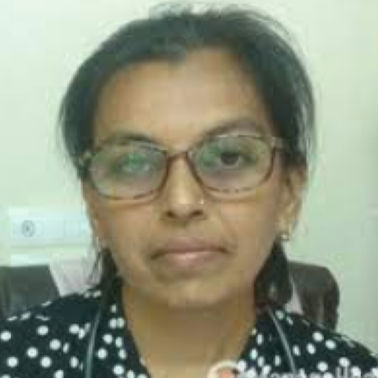Delayed Period Causes
Wondering what leads to a delayed period? Explore the top 10 reasons, from stress and PCOS to thyroid issues and perimenopause. Get informed and learn when to see a doctor.

Written by Dr. Shaik Abdul Kalam
Reviewed by Dr. J T Hema Pratima MBBS, Fellowship in Diabetes Mellitus
Last updated on 13th Jan, 2026

Introduction
A late period can send your mind racing. While a pregnancy test is often the first thought, the reality is that your menstrual cycle is a finely tuned system influenced by a vast array of internal and external factors. A delayed period, medically known as oligomenorrhoea, is incredibly common, and most people who menstruate will experience it at least once in their lives. Understanding what leads to a delayed period is key to addressing your concerns and taking the right next steps.
This article will serve as your comprehensive guide. We'll move beyond the obvious to explore the intricate web of hormonal, lifestyle, and medical reasons that can disrupt your cycle. From the impact of daily stress and significant weight changes to underlying conditions like Polycystic Ovary Syndrome (PCOS) and thyroid disorders, we'll break down the science in an easy-to-understand way. Our goal is to empower you with knowledge, so you can better understand your body and know when it might be time to consult a healthcare professional.
Understanding Your Menstrual Cycle: The Basics
To grasp why a period might be late, it's helpful to first understand how a typical cycle works. The menstrual cycle is orchestrated by a complex dance of hormones primarily from the brain (the hypothalamus and pituitary gland) and the ovaries.
Consult a Gynaecologist for the best advice
The Key Phases
The main phases of the menstrual cycle include:
A standard cycle lasts between 21 and 35 days, with day one being the first day of your period.
The first half (the follicular phase) involves the brain signalling the ovaries to prepare an egg for release. This culminates in ovulation.
The second half (the luteal phase) sees the ruptured follicle produce progesterone, which thickens the uterine lining in preparation for a potential pregnancy.
If pregnancy doesn't occur, progesterone levels drop, triggering the shedding of the uterine lining, your period.
A delayed period essentially means that ovulation happened later than usual or didn't happen at all, pushing back the entire timeline.
Top 10 Reasons for a Delayed Period
Let's delve into the most common culprits behind a late period.
1. Stress and Its Profound Impact
Chronic stress is one of the most frequent causes of menstrual disruption. When you're under significant physical or emotional stress, your body goes into "survival mode." It prioritizes essential functions by producing cortisol, the primary stress hormone.
How it works: High cortisol levels can suppress the hypothalamus. This is the command center in your brain that tells your pituitary gland to release the hormones (FSH and LH) that trigger ovulation. When this communication line is down, ovulation can be delayed or prevented altogether, leading to a late or missed period.
Examples: A high-pressure job deadline, financial worries, grief, or even intense exam preparation can be enough to cause a cycle delay.
2. Polycystic Ovary Syndrome (PCOS)
PCOS is a common hormonal disorder affecting people of reproductive age. It's characterised by a hormonal imbalance, often involving higher levels of androgens (male hormones).
How it works: This imbalance interferes with the development and release of eggs from the ovaries. Without ovulation, the period doesn't arrive on schedule. Individuals with PCOS often experience irregular periods, excess hair growth, acne, and may have numerous small cysts on their ovaries.
3. Significant Weight Fluctuations
Your body weight is directly linked to your hormonal function. Both low body weight and rapid weight loss can be a primary reason for missing periods.
How it works: Body fat plays a role in producing estrogen. If your body fat drops too low (often seen in athletes or those with eating disorders), estrogen production can falter, disrupting ovulation. Conversely, being overweight can lead to excess estrogen production, which can also prevent ovulation and cause irregular bleeding.
4. Thyroid Disorders
The thyroid gland, located in your neck, acts as your body's metabolic thermostat. Both an overactive thyroid (hyperthyroidism) and an underactive thyroid (hypothyroidism) can cause menstrual irregularities.
How it works: Thyroid hormones interact with the sex hormones that control your cycle. An imbalance can shorten, lengthen, or even stop your periods altogether. Thyroid disorders are highly treatable, which is why this is a crucial factor to discuss with a doctor.
5. Perimenopause: The Transition Phase
Perimenopause is the natural transition period leading up to menopause, often starting in a person's 40s. During this time, estrogen levels become erratic and begin to decline.
How it works: As ovulation becomes less predictable, menstrual cycles can become longer, shorter, heavier, or lighter. It's common to skip periods for several months during this phase before they stop completely (menopause).
6. Intense Exercise Regimens
While moderate exercise is beneficial, sudden and intense physical training can put significant stress on the body, leading to what is sometimes called "athletic amenorrhoea."
How it works: This combines the effects of physical stress and low body fat. The body redirects energy away from non-essential functions like reproduction to fuel more critical processes, halting ovulation.
7. Changes in Your Schedule (Circadian Rhythm Disruption)
Your body's internal clock, or circadian rhythm, helps regulate various hormonal cycles, including your menstrual cycle.
How it works: Drastic changes in your sleep-wake cycle, such as switching to a night shift, experiencing jet lag from travelling across time zones, or chronic sleep deprivation, can disrupt the production of hormones like melatonin and cortisol, which in turn can delay ovulation.
8. Certain Medications and Birth Control
Some medications can have side effects that impact your cycle.
Hormonal Birth Control: Going off birth control pills can lead to a temporary delay as your body recalibrates its natural hormone production. Some pills, IUDs, implants, and shots are designed to lighten or stop periods altogether.
Other Medications: Antidepressants, antipsychotics, chemotherapy drugs, and some corticosteroids can also cause menstrual irregularities.
9. Other Medical Conditions
Beyond PCOS and thyroid issues, other health problems can be the root cause.
Premature Ovarian Insufficiency (POI): This occurs when the ovaries stop functioning normally before age 40.
Pituitary Tumours: Though rare, noncancerous tumours on the pituitary gland can disrupt hormonal signals.
Unmanaged Diabetes: Poorly controlled blood sugar can contribute to hormonal imbalances.
10. The Obvious (But Not Only) Cause: Pregnancy
Of course, a delayed period is a classic early sign of pregnancy. If there's any chance you could be pregnant, taking a home pregnancy test is a logical first step. Fertilization triggers the production of human chorionic gonadotropin (hCG), which tells the ovaries to continue producing progesterone, preventing the uterine lining from shedding.
Get Your Health Assessed
When to See a Doctor About a Late Period
It's generally advised to consult a healthcare provider if:
You've missed three or more periods in a row.
Your periods suddenly become irregular after being regular.
Your period is more than a week late with a negative pregnancy test.
You experience severe pain, fever, or unusual bleeding.
You have other concerning symptoms like excess hair growth, headaches, or vision changes.
Conclusion
A delayed period can be a source of anxiety, but it's most often a signal from your body that something is off-balance. This imbalance is rarely a serious medical emergency and is frequently linked to manageable factors like stress, lifestyle, or common hormonal conditions. By understanding the diverse range of causes, from the profound effects of cortisol on your brain's command center to the impact of your thyroid on your metabolic harmony, you can approach the situation with knowledge rather than fear.
The most powerful step you can take is to start paying attention. Tracking your cycle, noting symptoms, and observing patterns in your life can provide you and your healthcare provider with crucial clues. If your period is consistently irregular or you have other concerning symptoms, don't hesitate to seek professional guidance. Your reproductive health is a vital part of your overall well-being, and understanding it is key to taking control.
Consult a Gynaecologist for the best advice
Consult a Gynaecologist for the best advice

Dr. Ashish Kale
Obstetrician and Gynaecologist
19 Years • MBBS, MD (OBG), DNB, MNAMS, Diploma in Endopelvic Surgery, Fellowship in Embryology, Fellowship in ART.
Pune
Apollo Hospitals Pune, Pune

Dr. Asawari Kesari Kapoor
Obstetrician and Gynaecologist
23 Years • M.B.B.S, D.G.O(Mumbai) ,D.G.O (C.P.S), D.N.B (OBGY)
Delhi
Apollo Hospitals Indraprastha, Delhi
(25+ Patients)

Dr. Debashree Saha
Obstetrician and Gynaecologist
4 Years • MBBS, MS (Obstetrics & Gynaecology)
Kolkata
DR. DEBASHREE SAHA Clinic, Kolkata

Dr. Mona Yadav
Obstetrician and Gynaecologist
19 Years • MBBS, MD (Obstetrics & Gynaecology)
Dombivli
Nulife multispeciality, Dombivli

Dr. Sanjan Das
Obstetrician and Gynaecologist
15 Years • MBBS,MS
Bengaluru
Apollo Clinic, Sarjapur Road, Bengaluru





